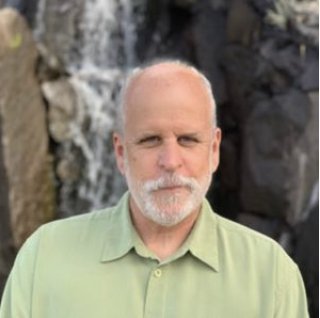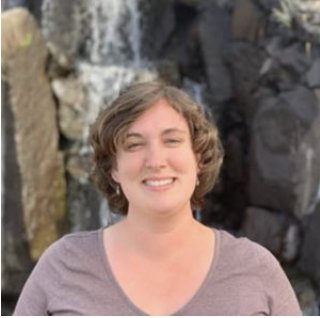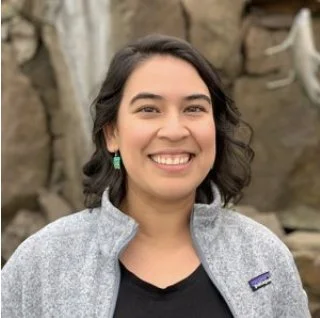72-Hour Parking Ordinance Sparks Debate at Hood River City Council Meeting
By Cole Goodwin
Hood River, OR June 26, 2023 – Hood River City Council held a public discussion on a 72-hour parking ordinance. The 72-hour rule would prohibit vehicles from parking within the public right of way for a period of more than 72 hours. The hearing sparked a lengthy and lively discussion, with many viewpoints and concerns voiced by the council.
Points brought up in the hearing included:
On-street camping.
Impacts to residents and neighborhoods.
Impacts to seasonal residents and ‘snowbirds’.
Impacts to residents with multiple vehicles.
The use of public right of way as storage.
Concerns about the broad language in the ordinance, which gives complete discretion to Police and the City Manager.
Safety concerns about run down and derelict vehicles and unsupervised propane in RVs.
Cars parked on the street preventing the ability to sweep and plow the street.
The potential to create an enforceable parking permitting system.
Impacts to the city budget.
Hood River City Police Chief Neal Holste.
Hood River City Police initiated the discussion, stating that their team, in collaboration with City staff and City Attorney Daniel Kearns, had conceived the idea.
“We’re wanting to adopt it as a tool into our tool belt,” said Neal Holste, Hood River City Police Chief.
Daniel Kearns, City Attorney pictured center.
Kearns implied that the ordinance was a potential solution to on-street camping and expressed the view that the 72-hour parking notice could be considered a reasonable, common-sense measure, intended for addressing specific problem cases and not necessarily meant to target residents.
“What brought this to my attention was basically derelict vehicles being parked in peoples neighborhoods for a long long time,” said Kearns, “It's not, my neighbor has been parked in front of my house for three days and I want them to move, that’s not the issue and that’s not what the police department wants to do any enforcement on.”
“The object here is to give the police license to knock and talk: ‘What’s the plan here, you can’t really stay here like this in code you have 72 hrs and you have to move. Do you have a place to go?’ Cause that’s the problem,” said Kearns. “If it’s just someone, has dumped their junk car in the street, this would allow you to tag it, put the notice on, wait a bit and then tow it if there's no response at all. It’s not to facilitate neighbor battles. So that’s the objective here.”
“You don’t have a huge problem in this city, but I know Deschutes County is working on getting rid of a very big homeless camp, and to the extent they can move they might move North, so you might want to think about this going forward and give the police the tools to deal with the situation,” said Kearns.
Kearns noted that federal case law prevents local governments from criminalizing basic life functions like camping on public property. Kearns gave the example of Portland City Council being unable to outlaw urban camping in the city. In June Portland City Council approved an ordinance which bans camping on public property from 8 a.m. to 8 p.m. and introduces stricter rules on camping during other hours. The ordinance essentially mandates that those experiencing homelessness break down their camps during the day or risk criminalization.
During the meeting, it was highlighted that the ordinance was modeled after one from a much larger city than Hood River, and the challenges faced by the two communities were markedly different.
Does the ordinance overreach?
Susan Crowley, a retired defense attorney, and resident of Hood River, gave testimony to the City Council, disagreeing with the ordinance as written, saying that the language in the ordinance was too broad and did not specifically address the issue brought up by law enforcement and the City Attorney.
“As written, and that’s what you go by because it’s a law, it basically says no person shall store motor vehicle in the public right away,” said Crowley.
“It gives complete discretion to the City Manager and to the police and you just don’t do that legally,” said Crowley. “You don’t give police complete discretion like that. That’s really bad public policy. You need to pay attention to the language that is in the ordinance.”
“You can't write a law that says “no person” can do ‘X’ and then selectively decide who “no person” is,” said Crowley.
Crowley also felt the ordinance would disproportionately affect households with multiple adults who each have cars, low income individuals and those without off street parking.
Crowley herself lives in an old historic neighborhood. She and her husband do not have a garage, but have managed to create a concrete pad for off street parking for her husband’s search and rescue vehicle.
“A lot of this is dependent on your class and social status…Many people just don’t have any off street parking,” said Crowley.
Questions about the impacts to locals were numerous.
Is a parking permit system the solution?
Crowley suggested a permitting system could be a better solution than a 72-hr parking ordinance.
“There’s an easy fix, just give a permit to residents so that they can park their passenger vehicles, not their boats or RV's, in front of their house,” said Crowley.
The Council Deliberates
City Councilor Megan Saunders and Tim Counihan agreed that the ordinance seemed to be overkill. Saunders added that the city could potentially be venturing into territory in which they would have to create an on-street parking permit system which would impact thousands of people.
Such a system could allow residents to purchase on-street parking permits. However cost barriers, literacy and language barriers all pose potential difficulties to such a system. In addition there were concerns that a permitting system could create higher rates of criminalization, more opportunities for enforcement issues, and greatly impact the city budget.
Gladys Rivera said she was also considering the impacts a 72-hr ordinance would have on residents, noting that her father has a variety of vehicles which are parked on a public street and that this ordinance would impact him.
Mayor Paul Blackburn pointed out that it would only impact him if a neighbor called him in to complain.
Rivera responded that her fathers neighbors had called in to complain about his vehicles in the past and that this ordinance would allow for City police to mandate that he move his vehicles.
“I understand the well intention behind it but…this just gives me a lot of pause,” said Rivera.
Debate continued until Blackburn said he felt that the City Council could not reach an agreement on the issue.
The council then voted that they would like to see more information about how many units in Hood River are without off street parking, City budget impacts, examples of how other communities are dealing with on-street parking and camping, as well as information about how a parking permit system could work for Hood River.
A recorded video of the meeting is available on YouTube. The ordinance discussion begins at timestamp: 2:35:50.
Upcoming Public Meeting Notice
The next Hood River City Council Meeting will take place July 10, 2023 at 6 p.m. at Hood River City Hall located at 211 2nd St. The City of Hood River Council meetings can be viewed live on YouTube. Please check the City’s website for the most current schedule of City public meetings.
Residents are encouraged to submit their testimony and written public comments to the City Recorder by emailing j.gray@cityofhoodriver.gov.
Support Local News
Local news provides invaluable government oversight that keeps our communities informed.







